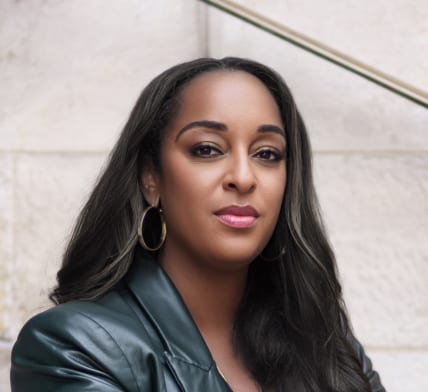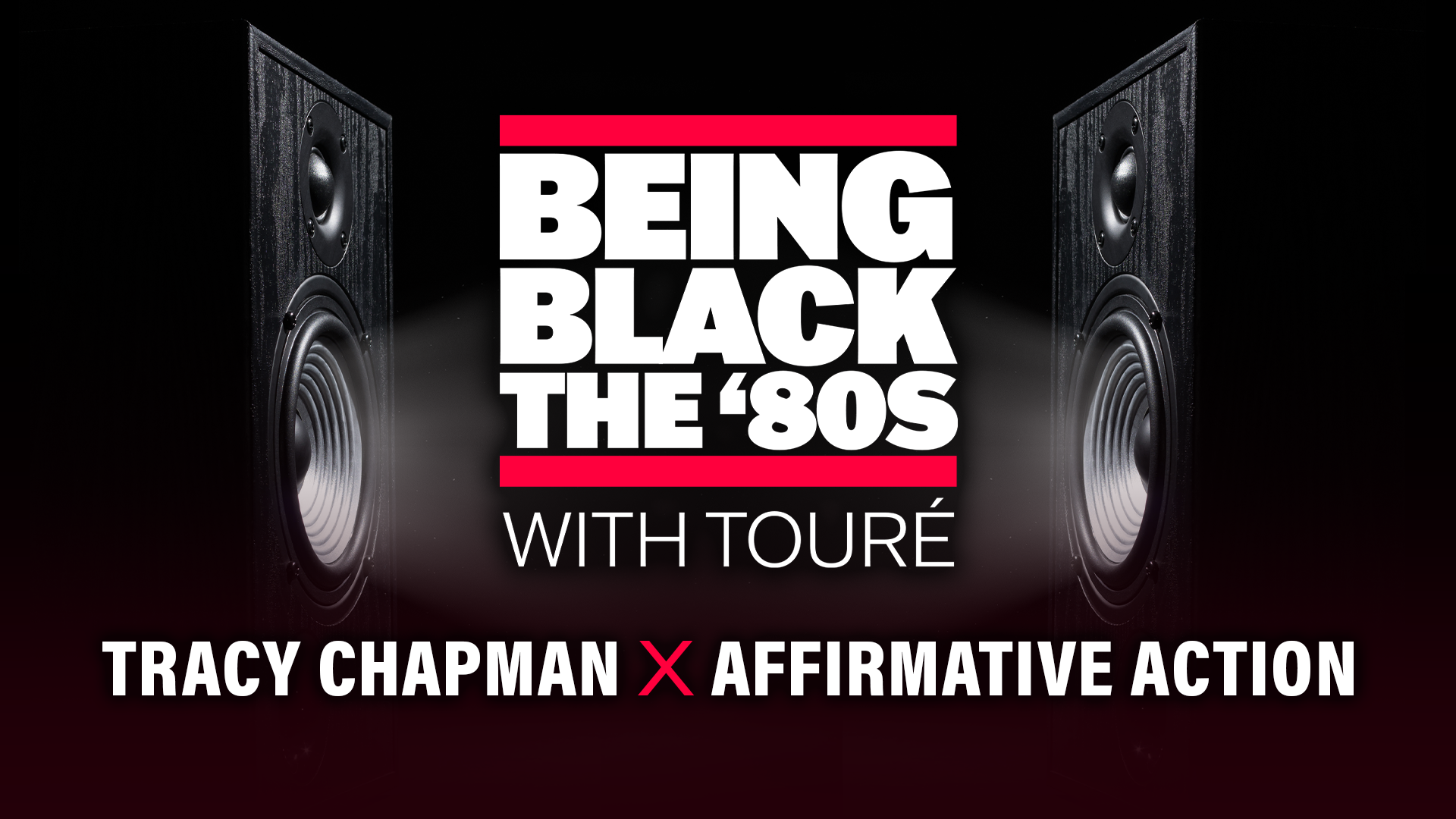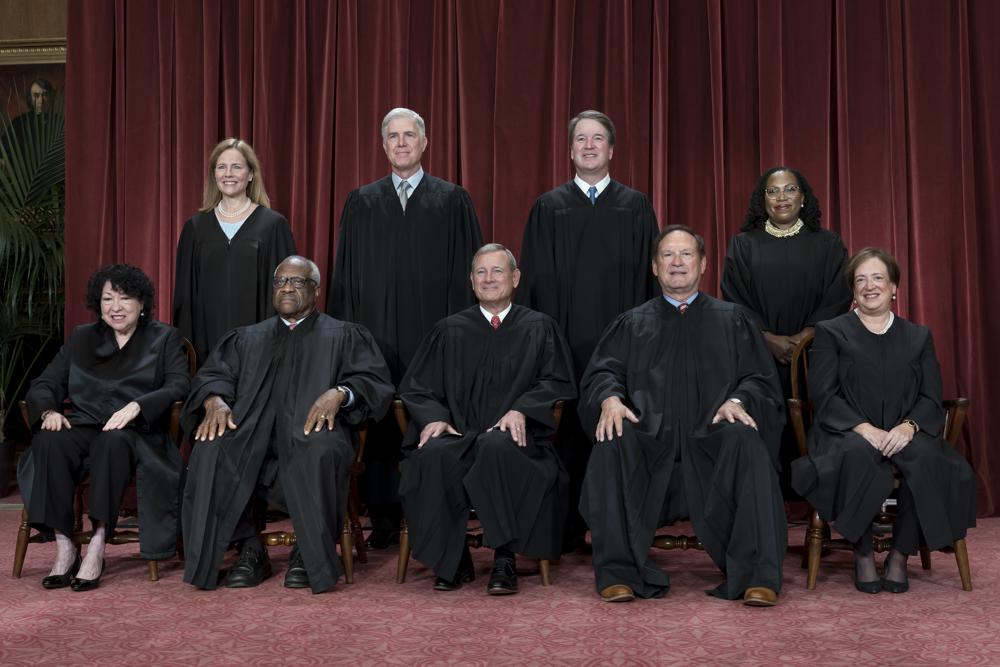Dear Black students: Don’t let the Supreme Court affirmative action ruling discourage you
OPINION: As a Harvard alum, I’ve never felt guilty about affirmative action. Here’s why Black kids shouldn’t feel ashamed to discuss race.

Editor’s note: The following article is an op-ed, and the views expressed are the author’s own. Read more opinions on theGrio.
The day I got into Harvard University over 15 years ago, I knew my life had changed forever. As a 17-year-old public school kid whose mother worked as a school teacher and whose father cleaned office bathrooms as a custodian, I applied with no deep connections, no real sense of what I was up against in the hypercompetitive college admissions landscape. In retrospect, it was probably best I didn’t.
There were kids who’d been preparing for the Ivy League since they were 3 years old. Groomed for the SATs and interviews, sent to private boarding schools and given a roadmap to navigate the process.
I was just a smart Black kid who loved to read. One of the lucky chosen few who had been funneled over to the AP and honors tracks in my city high school, attending classes with mostly white and non-Black classmates, as the Black kids from my actual neighborhood went to different core classes, all under the same building.
Harvard was a “reach school,” one I wasn’t sure I’d get into but felt obligated to try for anyway.
“You miss 100% of the shots you don’t take,” as the old saying goes.
The shot I wanted was to learn at what I was told was the best-resourced school in the country. After years of going to a city school and watching the suburban schools down the street be blessed with new athletic fields, science labs, sports uniforms and endless investments, I wanted to know what it was like to be on the other side of America’s public school system — to have no limits or “budget problems” or constant reminders that you were positioned to be inferior because of where you lived.
Through the kindness of teachers, guidance counselors and a 93-year-old Harvard alum, a Jewish doctor who I was connected with by chance, I had the support of an entire village who got me through the application process, advocated for my admission and saw me to the other side.
The day I got in, I was near tears with joy and gratitude.
And so, with my admission, I just knew that this institution would change my life. I entered in the fall of 2004, determined to prove they had not wasted a spot on me. But the change that would occur in college would not be what I predicted.
Despite my fears that I might struggle or be behind because I came from an underresourced school, in my freshman year, I did mostly fine, maintaining a good grade point average and ultimately gaining entry into an honors social sciences major.
And while I was aware that perhaps my race was evaluated as one factor in my entire application, the longer I traversed through school, the less the thought brought me any sense of shame.
College was the first time I saw just how much wealth, privilege and family connections, had positioned many of my classmates for success before they stepped foot on campus. Some classmates had last names that appeared on buildings or were heirs to massive fortunes. They moved unencumbered, knowing they’d be fine no matter what they did in class.
Each year, I saw that I not only deserved to be at this institution but that my contributions and the contributions of my Black classmates made it better. Many of us were leaders, activists and innovators, bringing the best of ourselves and our cultures to the college.
The more I learned about my university, and nearly all colleges in the United States, the more I understood that indigenous land theft and slave labor helped fund many of these institutions.
The University was based in a town that once belonged to indigenous people named the Massachusett, and was funded by a white man named Issac Royal, deemed “the largest slaveholder in 18th-century Massachusetts,” who got his money from the slave trade. Georgetown University had the financial benefit of Jesuit plantations and even sold 270 enslaved Black people during a time of hardship to pay the bills. Some of Yale University’s first donations came from slave owners, and both free and enslaved Africans helped to lay the bricks of some of its first buildings. The list goes on.
Not only did the oppression of non-whites build these universities but the systemic exclusion of qualified Black people and generational African Americans, in particular, had ensured there would always be more spots for the wealthy and white.
In fact, the first Black students admitted at Harvard — Martin Delaney, Issac H. Snowden and Daniel Laing — arrived in 1850, only to be met with white classmates who protested their presence, resulting in their expulsion. It had nothing to do with their abilities or qualifications.
Why would I, as a generational African American, the descendant of a family held as chattel slaves in South Carolina, ever feel bad about my race being evaluated as part of my overall candidate profile?
What my family overcame to survive slavery in America and what my parents gave to help me succeed in a school system that currently failed Black children and children of color — why wouldn’t that matter to my story?
Since the Supreme Court struck down race-conscious admissions programs at Harvard University and the University of North Carolina, I have seen numerous faulty assumptions made in the entire affirmative action debate.
The first is that affirmative action somehow harms students who are beneficiaries, Black students in particular, as was the experience of Supreme Court Justice Clarence Thomas. While Thomas expressed a perception that affirmative action at Yale Law School cheapened the worth of his degree as he struggled to find work, I respectfully can’t relate. Affirmative action in elite college admissions is minuscule compared to the reparations that are owed to generational African Americans in particular. My knowledge of self is stronger than a biased person’s perception that I didn’t deserve my spot.
The second assumption is that removing race-conscious admissions somehow makes the process more “fair,” a value that American society is deeply fixated on in the face of much hypocrisy. There is no fairness in a U.S. public school system that manages to be more diverse, yet still highly segregated, concentrating kids by race and poverty into dropout factories that hard work won’t fix.
Inequality begins from kindergarten and there is no clean slate for the millions of kids already in the system looking for hope and a way out. It would seem this ruling is more about easing the conscience of students who didn’t get in that an underprivileged Black or Hispanic person didn’t take their spot than ensuring university admissions are actually fair to all who apply. The latter is a loftier goal, requiring the removal of legacy policies and other hidden advantages in the system.
When it’s all said and done, what Black students have is affirmation. Affirming that their aspirations are possible. Affirming that their lived experiences matter. And most importantly, affirming that they do deserve spots even in places where many faces may not look like them if they so choose to attend. It is their right to have fair access.
The one silver lining of SCOTUS’ ruling is their statement that: “Nothing in this opinion should be construed as prohibiting universities from considering an applicant’s discussion of how race affected his or her life, be it through discrimination, inspiration, or otherwise.”
To the students who are applying to selective private colleges or even thinking of it, and who feel discouraged by the ruling and predicted dropoff in students of color applying or getting in, they should know there is nothing to be ashamed of in discussing race. You may not have affirmative action policies anymore to make plain what you know about the realities of your educational journey as a Black person, but you do have your voice. Use it boldly, proudly, and purposefully, knowing that wherever you go, you can make the grade.

Natasha S. Alford is VP of Digital Content and a Senior Correspondent at theGrio. An award-winning journalist, filmmaker, and TV personality, Alford is author of the forthcoming book “American Negra.” (Harper Collins) Follow her on Twitter and Instagram at @natashasalford.
More About:Education Natasha Alford Politics Opinion












